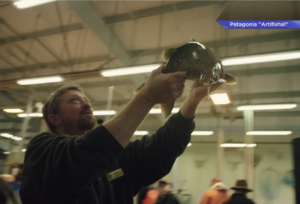On “The Impact”:
Outdoor clothing company Patagonia’s new documentary about fish hatcheries warns of a future without wild salmon. With the release of Artifishal the company raises concerns that hatchery born fish released into the wild will wreck the gene pool and spell doom for struggling wild salmon populations.
Washington has the largest system of salmon hatcheries in the world. According to the Washington Department of Fish and Wildlife, most salmon caught in the state were born in hatcheries. As wild fish runs have declined hatchery production has been vital to the state’s fishing industry and to meeting tribal treaty obligations.
There are fierce differences of opinion in the debate over whether hatcheries represent a serious threat or a necessary stop gap solution.
Jamie Glasgow of the Wild Fish Conservancy says there is considerable evidence that hatcheries represent genetic and ecological threats to wild salmon.
“If we don’t change how we’re managing hatcheries and be more thoughtful about where those impacts are occurring and how we can minimize those then we’re going to risk losing our salmon,” said Jamie Glasgow, Wild Fish Conservancy.
The Northwest Indian Fisheries Commission argues hatcheries are not to blame for the state of wild salmon.
“They are there to mitigate for the loss of habitat and they have not impacted the gene pool,” said G.I. James, Lummi Nation, NWIFC.
“We blame anything to take if off the real issue and that is habitat, clean water and protecting our environment,” Willie Frank III, Nisqually Indian Tribe, NWIFC.
Other topics this week:
- executive order to ban flavored vaping products
- Grizzly Bear restoration plan update
- proposed policy change to avoid lethal removal of wolves.

